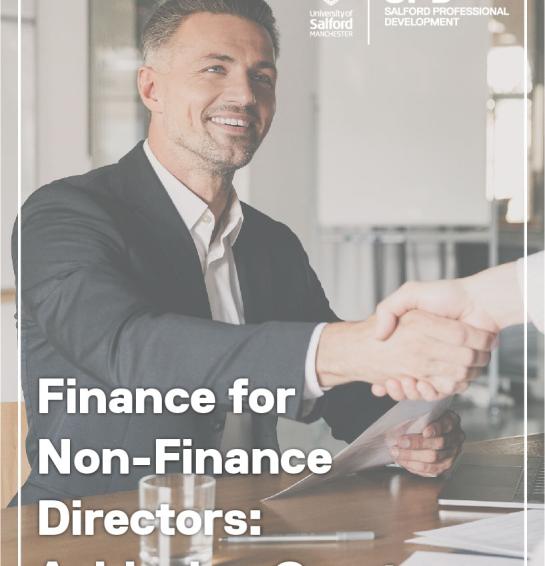Finance for Non-Finance Directors: Achieving Greatness
Finance for Non-Finance Directors: Achieving Greatness
In today’s business environment, directors from any department are expected to have skills that go beyond their specific expertise. It’s no longer enough to only excel in your particular area; directors must be strategic leaders, able to guide their companies toward growth and success. One of the most critical skills for achieving this is understanding business finance—even if you're not a Finance Director.
This blog explores why learning finance for non-finance directors is essential for informed decision-making, collaboration, and overall business excellence.
1. Mastering the Language of Business
Finance is often called the "language of business," and it’s easy to see why. Just like learning any language opens doors to new opportunities, mastering the fundamentals of business finance allows directors to engage in meaningful discussions with executives, shareholders, and stakeholders. By understanding financial reports—such as balance sheets, income statements, and cash flow reports—non-finance directors can make more valuable contributions to strategic discussions, as they can better assess the financial impact of various decisions.
2. Informed Decision-Making
One of the core responsibilities of directors is making high-stakes decisions that shape the organisation's future. A firm grasp of business finance concepts allows non-finance directors to evaluate the financial viability of proposed projects, potential risks, and the expected return on investment. With knowledge in finance for managers, directors can ask insightful questions, analyze different scenarios, and work closely with finance teams to make decisions that are grounded in sound financial principles.
3. Driving Accountability and Transparency
Transparency and accountability are critical for a well-functioning organisation. Directors who understand finance for managers can uphold these values by actively monitoring financial performance, ensuring budgets are followed, and identifying any discrepancies. This level of oversight promotes a culture of responsible financial management and builds trust with stakeholders. A solid grasp of cash flow and other key financial metrics can play a pivotal role in ensuring fiscal discipline across departments.
4. Effective Cross-Functional Collaboration
Modern businesses are highly interconnected, and cross-functional collaboration is vital for achieving organisational goals. Non-finance directors who understand business finance serve as a bridge between departments, helping communicate complex financial information in a way that’s accessible to all. This skill fosters a culture of collaboration, reduces misunderstandings, and breaks down silos, allowing for a more cohesive approach to problem-solving and decision-making.
5. Safeguarding Long-Term Sustainability
Having a thorough understanding of business finance enables directors to foresee potential financial challenges and opportunities. By tracking economic trends, market fluctuations, and industry changes, non-finance directors can help steer their organisation toward a sustainable future. They can advocate for initiatives that align with the company’s financial objectives and work to ensure long-term growth. Additionally, they can interpret financial reports to make decisions that strengthen the company's resilience to future challenges.
6. Enhancing Board Effectiveness
A diverse board with a range of skills is essential for the long-term success of any organisation. Non-finance directors with a strong understanding of finance for managers can complement the expertise of their fellow directors, leading to more informed and well-rounded discussions. This diversity of thought is key to better decision-making and enhancing the overall effectiveness of the board. A well-rounded board makes for a more resilient and adaptive organisation, which is crucial in today’s evolving business landscape.
Conclusion
For non-finance directors, understanding business finance is not just an asset—it’s a necessity. Acquiring knowledge of finance empowers directors to contribute meaningfully to strategic discussions, improve collaboration, enhance transparency, and safeguard the future of their organisations. As the business world continues to evolve, non-finance directors who understand cash flow, financial reports, and other critical finance concepts will be better positioned to unlock new opportunities for both personal and organisational growth.
If you’re a non-finance director looking to excel in your role, consider enhancing your skills with our Directors Finance Programme. This course will equip you with the financial knowledge you need to achieve greatness within your organisation. Follow the link below to learn more.


